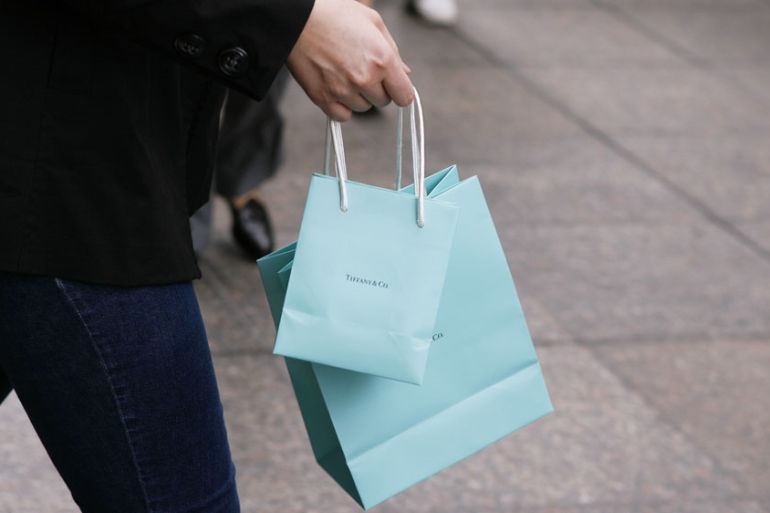LVMH confirms plans to buy iconic jeweller Tiffany
The offer comes as Tiffany has struggled with stagnating sales as pressures mount on Chinese consumers.

French luxury conglomerate LVMH has confirmed that it has held preliminary discussions to buy United States jeweller Tiffany & Co.
In a statement released on Monday, LVMH said, “there can be no assurance that these discussions will result in any agreement.”
Keep reading
list of 3 itemsIMF says Mideast markets twice as sensitive to global risk as EM
Recession hits Hong Kong as protests drag on for fifth month
The group has offered $120 a share, or about $14.4bn for Tiffany, according to The Wall Street Journal.
The jeweller’s stock market value stood at $11.9bn at the close of Wall Street trading on Friday.
The purchase of Tiffany by LVMH would be one of the largest acquisitions by the French group, which is a world leader in luxury, present in fashion, wine, perfumes and cosmetics.
“They say diamonds are a girl’s best friend and Europe‘s richest man, and owner of Louis Vuitton Bernard Arnault, obviously feels that adding US jeweller Tiffany to his list of brands will prompt a similar uplift to LVMH’s global revenues,” said Michael Hewson, chief market analyst at CMC Markets UK.
“His attempt to put a $14.5bn ring on Tiffany, having already added Bulgari a couple of years ago, is likely to take the fight in this sector to its closest rival Richemont, who own Cartier, and would help LVMH in gaining better access to US markets,” he said.
Hewson added, however, that Tiffany shareholders were “unlikely to accept this initial bid” and could hold out for more.
LVMH operates a raft of brands, including Moet & Chandon, Christian Dior, Louis Vuitton and Bulgari.
It competes with the Kering group, which owns Gucci and Saint Laurent, as well as Richemont SA, which owns jewellers Cartier and Van Cleef & Arpels.
The offer comes as Tiffany has struggled with stagnating sales as China‘s slowing economy has weighed on spending by Chinese consumers, who make up a substantial portion of luxury spending.
The strong dollar has also made Tiffany products more expensive for consumers outside the US.
There are further jitters in the luxury market over both the US-China trade war and a broad anti-corruption campaign launched by Chinese President Xi Jinping which has put the brakes on extravagant gifts offered by businessmen and bureaucrats.